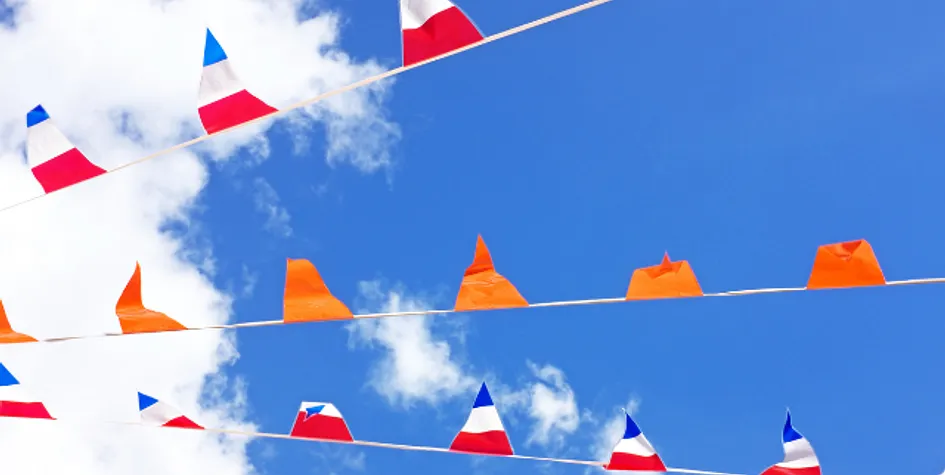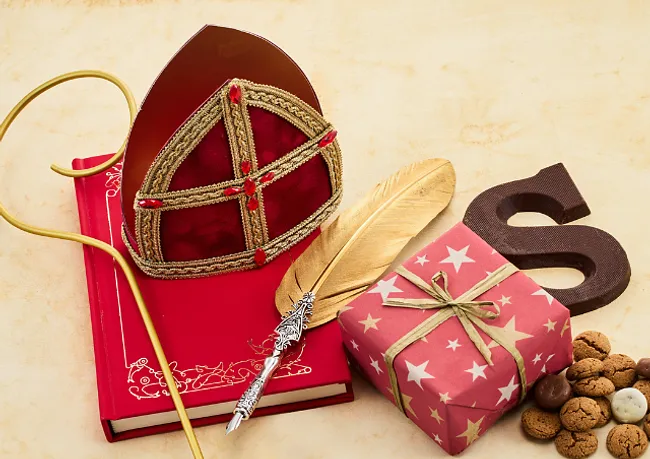Undutchables offers a variety of vacancies. Check out the latest job offers and apply.
We look forward to your application.
The Netherlands is a country rich in history, culture, and tradition. Its national holidays offer insights into Dutch values and way of life. Whether you’re a local or a visitor, understanding these holidays can help you plan your time and fully experience the festivities.
Dutch national holidays, also known as public holidays, are days of nationwide celebration or reflection. These holidays encompass a variety of events, from religious celebrations to significant historical dates, and hold great importance to the Dutch people. However, it's important to understand that official public holidays in the Netherlands do not automatically guarantee employees a day off from work. Whether you have these holidays off typically depends on your individual employment contract or collective labour agreement (CAO).
New Year's Day is celebrated on January 1st with traditions such as the Nieuwjaarsduik (New Year's Dive) where thousands of people plunge into the North Sea or local lakes. Popular spots include coastal towns like Scheveningen, where crowds gather to take part. Families often spend the day relaxing and enjoying seasonal treats like oliebollen (fried dough balls), reflecting on the new year ahead.
Good Friday is observed in the Netherlands as a solemn Christian holiday. Although it is not an official public holiday in all parts of the country, many people attend church services, especially in Protestant and Catholic communities. In some regions, special Passion plays and musical performances, such as Bach's "St. Matthew Passion," are held. While not widely commercialized, Good Friday is marked by quiet reflection leading into Easter weekend.
Easter Sunday is a joyful occasion in the Netherlands. Families enjoy festive meals featuring traditional foods like paasbrood, and children often participate in Easter egg hunts. Many people also attend church services. Easter Monday is recognized as an additional official public holiday, allowing for an extended weekend of celebration and relaxation.
Another national holiday in the Netherlands is King's Day, celebrated annually on April 27 to honor King Willem-Alexander's birthday. On this official holiday, the country turns orange (the royal color), and red, white, and blue (the colors of the Dutch flag). Festivities include street markets, outdoor concerts, parades, and parties in cities and towns nationwide. Amsterdam becomes a hub of activity, with canals packed with boats, while families and children take part in vrijmarkten (flea markets) to sell secondhand goods and treats. It's a day of national pride, community spirit, and festive fun.
Memorial Day is commemorated every May 4 to honor those who have fought to protect the Netherlands during times of war. Many people visit cemeteries or attend ceremonies to lay wreaths on soldiers’ graves. At 8:00 p.m. on May 4, a countrywide two minutes of silence is observed to honor fallen heroes. The King traditionally lays a remembrance wreath at Dam Square, and people are invited to watch in person or via broadcast, sharing in the moment of silence together.
Liberation Day, on May 5, commemorates the end of German occupation in 1945. It is officially a public holiday only every five years (every lustrum year). However, even in years when it is not an official holiday, many businesses close so people can celebrate. Events include concerts, parades, and festivals celebrating freedom and democracy. Major cities like Amsterdam and Utrecht host large celebrations, while the Prime Minister traditionally launches the festivities by lighting the bevrijdingsvuur (Liberation Fire), symbolizing peace and freedom.
Ascension Day is a Christian holiday that always falls on a Thursday. Many people in The Netherlands attend church services in the morning, and because it creates a long weekend, families often take the opportunity to enjoy outdoor activities such as cycling or nature walks. Local fairs or special markets are also common, making it both a day of reflection and relaxation.
Whit Sunday is celebrated in the Netherlands as a Christian holiday. Many people attend church services in recognition of the day that the Holy Spirit descended to the apostles. It’s also a public holiday, giving families the chance to enjoy a long weekend as it is followed by Tweede Pinksterdag (Whit Monday), which extends the celebrations with more leisure activities and outings. Many choose to spend time outdoors, visit festivals, or attend cultural events.
Christmas Day, always celebrated on December 25, focuses on family gatherings and festive meals. Although December 24 (Christmas Eve, or Kerstavond) is not an official holiday, many families spend it quietly, sometimes attending midnight church services or adding final touches to decorations.
Christmas Day is when most festivities take place, with many people gathering for a special meal and attending church in the morning. While gift-giving usually occurs earlier in December during Sinterklaas, Christmas Day is more about spending quality time with loved ones, often around a special dinner featuring dishes like roast turkey, rabbit, or gourmetten (a tabletop grilling tradition). The celebration continues on December 26, known as Tweede Kerstdag or Boxing Day, with more relaxed activities like visiting family or going for nature walks.
Sinterklaas is a cherished Dutch gift-giving tradition rooted in the legend of Saint Nicholas. Celebrated on December 5, also known as Pakjesavond (Present Evening), it is not an official public holiday, and most businesses remain open. On Pakjesavond, families exchange gifts, often accompanied by humorous rhymes and creatively wrapped surprises.
Festivities for this Dutch holiday begin in mid-November, when Sinterklaas arrives from Spain by steamboat with his helpers, the Pieten. They are welcomed with parades and music throughout the country. In the weeks leading up to December 5, children may leave their shoes out with a drawing for Sinterklaas and a carrot or an apple for his horse, hoping to receive treats like chocolate letters, marzipan, or pepernoten (spiced cookies). The holiday is known for its warmth, family gatherings, and playful traditions.
Looking ahead, it's valuable to know the dates for the official public holidays in the Netherlands in 2025. Here's a list to help you plan:
Holidays in the Netherlands reflect a blend of historical remembrance, cultural pride, and joyous celebration. From the solemn reflection of Good Friday to the lively festivities of King’s Day and the warmth of Christmas gatherings, each holiday highlights what makes Dutch culture unique. Knowing the dates and traditions behind these events will help you to join in the fun and celebrations.
Undutchables is here to help you navigate and celebrate these Dutch national holidays with ease. Whether you’re adjusting your calendar to accommodate official public holidays or simply curious about each holiday’s significance, we’ve got you covered. Embrace the rich traditions and vibrant festivities that make the Netherlands a truly special place to be, and let these holidays offer you a deeper understanding and appreciation of Dutch culture.
Undutchables offers a variety of vacancies. Check out the latest job offers and apply.
We look forward to your application.

We only need a few personal details, thanks!


